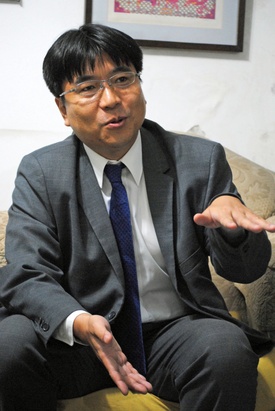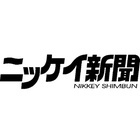Are temp agencies the bad guys?
[Fukazawa] Based on your experience, do you have any suggestions or comments on how Japan could improve its dekasegi issue or visa system?
[Shimano] It's more of a criticism than a suggestion.
[Fukasawa] That's great (laughs), that's great.
[Shimano] I don't really understand what the purpose of the fourth generation visa is. When I look at the Ministry of Justice website, I see various things said about it being something adopted from the working holiday program, or a measure to combat labor shortages, but I want them to clarify what the purpose of the system is.
[Fukazawa] They tout something like "nurturing talent that can act as a bridge between Japan and Brazil."
[Shimano] No, no, no (laughs)
[Nagai] At least that's the official stance.
[Fukazawa] One of the things we learned from the lecture by House of Representatives member Mikio Shimoji on August 5th was that the intention of the system design is to use the fourth-generation visa as a test case to create a good exchange system and to make it a framework for human resource development that can be expanded to the fifth and sixth generations in the future. In other words, if this works out, it will become the foundation for human resource development that will support Japan-Brazil exchange for the next 30 to 40 years.
From Mr. Shimoji's passionate explanation, it became clear that the fourth-generation visa system is designed to be quite different from the technical intern training system.
However, I was surprised to learn that at the time of the lecture, the Consulate General of Sao Paulo had not issued a single fourth generation visa. I was also a bit shocked to learn that even Shimoji did not know how many people had registered as supporters, even though applications were supposed to have been accepted from April.
In other words, the fourth generation visa system has not yet actually been put into operation. This made me think that since this could become an important framework that could determine the future of the Japanese community, rather than simply leaving it up to the Japanese government to steer, the Japanese community should proactively help out if there is anything they can do.
Shimoji said he believes the technical intern training system is flawed, with 10,000 people going missing within Japan every year, and that it is impossible to nurture the next generation of Japanese-Brazilians through such a system.
Based on that idea, in order to create a more ideal human resource development system, it is necessary to select people who are suitable to stay in Japan from the start and give them a visa. That's why the requirements for obtaining a visa are becoming stricter.

[Nagai] Professor Shimoji has said many times that he wants to "carefully raise the fourth generation." His passion for this is exactly the same as when he spoke last year. However, the requirements for the fourth generation visa system that started in July were much stricter than those stated in his lecture last year, so many people expressed the opinion during the Q&A session that they would like the requirements to be relaxed.
[Fukazawa] Another thing that bothered me was the prohibition that "neither dispatch companies nor supporters can receive intermediary fees." I think it's true that dispatch companies have caused many problems, so I understand what Shimoji is saying. But when you think about it realistically, who will gather the fourth generation and connect them with companies in Japan that need workers and send them there?
Under the current system, the person in question must choose a suitable person from the supporter list published on the Ministry of Justice website, contact them, and have that person introduce them to a job. In other words, they have to do everything themselves. What's more, they still don't know when the website will be published.
Even if the website is launched, it is possible that the fourth generation will have to blindly ask supporters about what kind of work they will be introduced to, even if they don't understand Japanese very well...
Even if there are bad points about the dispatch companies, rather than eliminating them, I feel that the system would run more smoothly if there was stricter management of them and they were allowed to take an agency fee and continue to send out fourth-generation workers.What do you think?
[Nagai] Unlike the boom in dekasegi jobs in the 1990s, today's Japanese Brazilians have acquaintances who have lived in Japan. Word of mouth on social media is also great, and I think there is already a structure in place that means bad agencies are naturally weeded out as they no longer attract workers.
During the period from the Lehman Shock until around 2015 when the number of workers visiting Japan was sluggish, most of the unscrupulous businesses were weeded out. With the recent boom, it is possible that unscrupulous businesses will emerge again, but I am more concerned that by becoming a supporter, employers may end up being tied to jobs that offer poor working conditions.
[Fukazawa] I see, that is certainly true. What else did you think after listening to Mr. Shimoji's speech?
[Nagai] I think Shimoji-sensei explained the purpose of the system very carefully. However, he mentioned that he wanted up to a maximum of 4,000 people to come, but there is a huge mismatch between the system and the actual needs and circumstances of fourth-generation Japanese, so I am worried about how many fourth-generation Japanese can actually go to Japan under these conditions.
*This article is reprinted from the Nikkei Shimbun (August 23rd and 24th , 2018 ).
© 2018 Masayuki Fukasawa / Nikkey Shimbun






